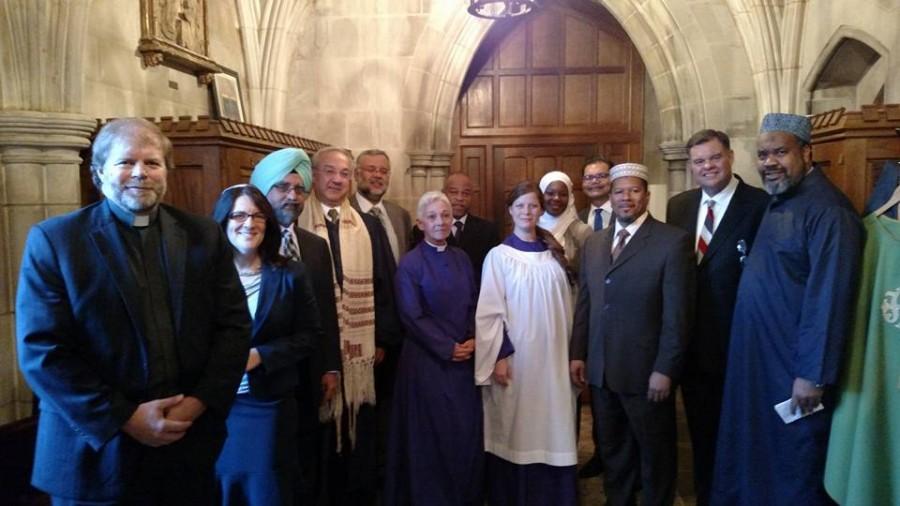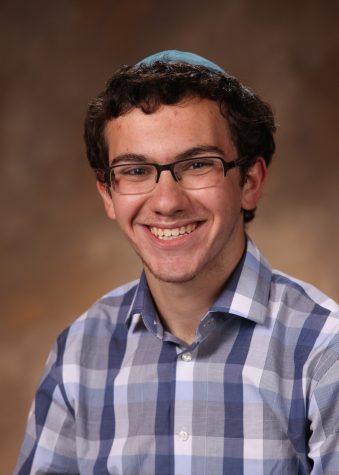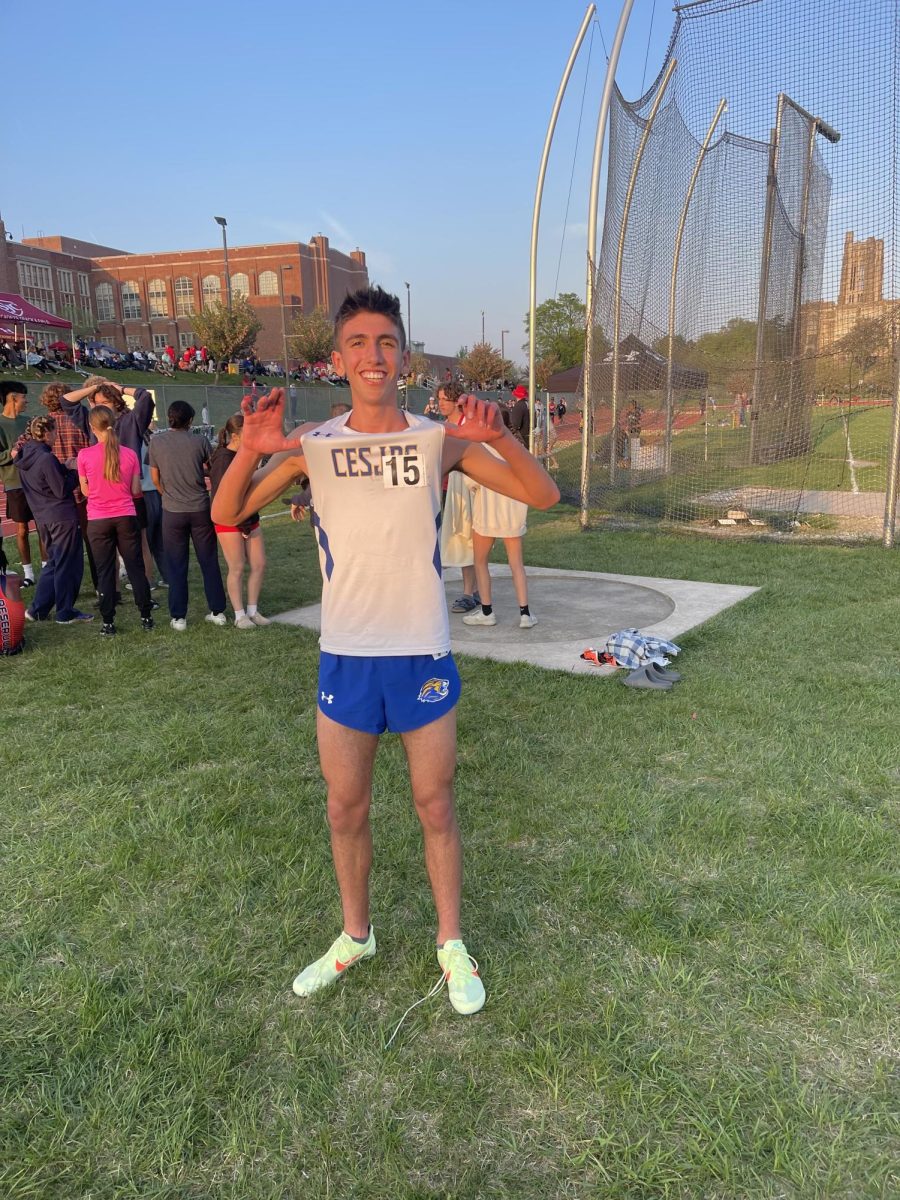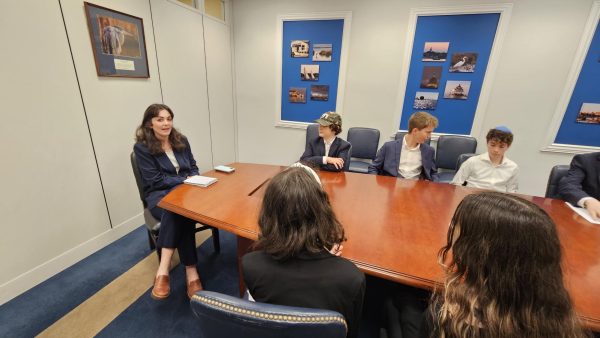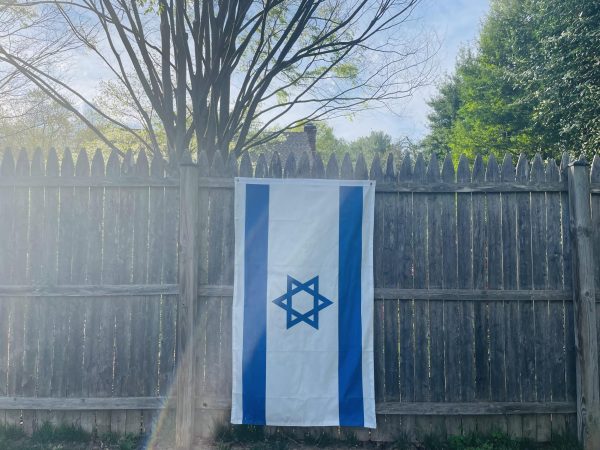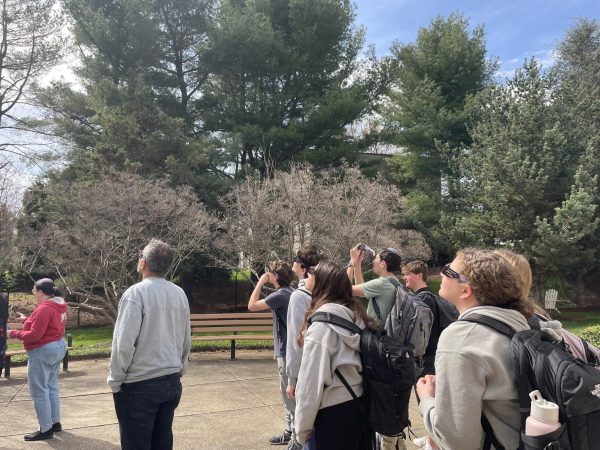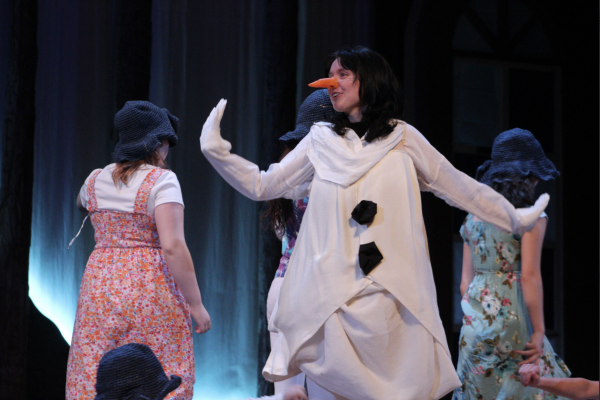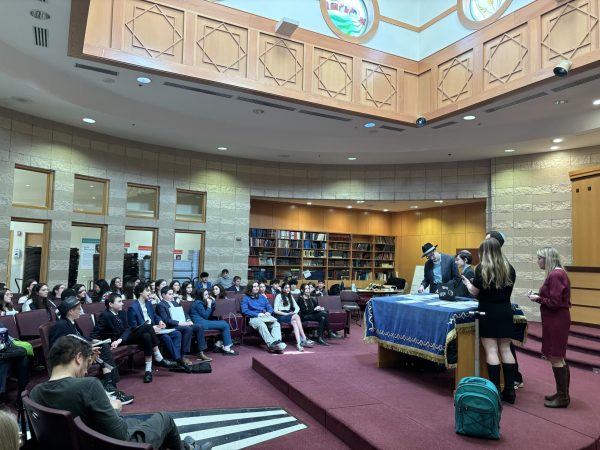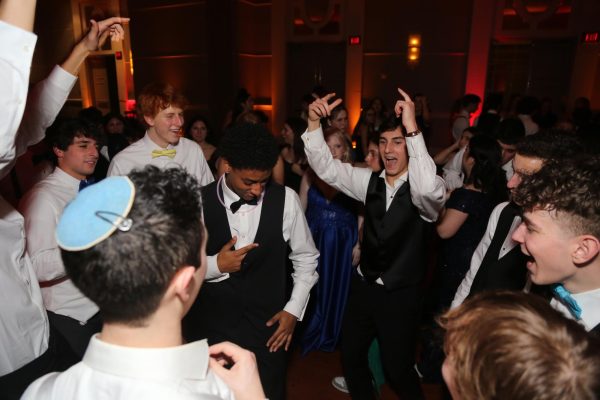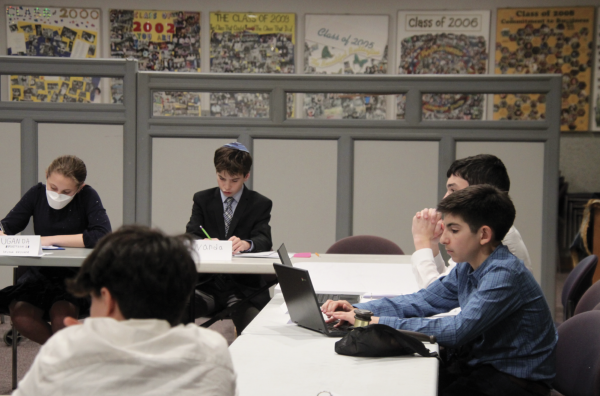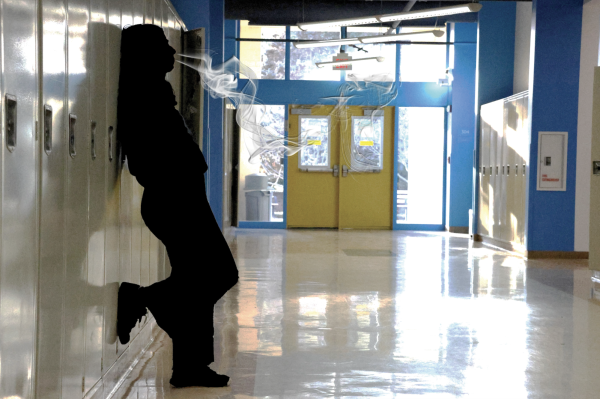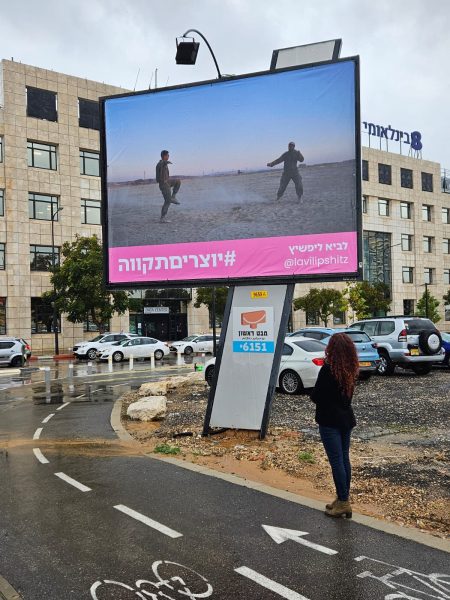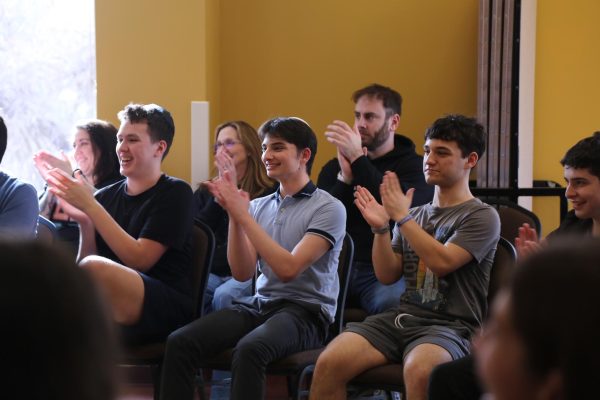Increased Islamophobia triggers discussion, concern
photo courtesy of Masjid Muhammad
Local interfaith leaders, including Imam Talib Shareef, meet to discuss religious tolerance in Washington, D.C.
January 21, 2016
During their time at CESJDS, students have studied their fair share of anti-Semitism throughout history. Jews, however, are not the only group of people who have faced faith-based prejudice. Currently, another kind of intolerance is striking the U.S. in response to the Islamic State’s radical agenda: Islamophobia.
Junior Caleb Gershengorn believes he witnessed discrimination against Muslims at the Baltimore-Washington International Airport, where he was boarding a plane with a group of teenage Pakistanis while on a summer program.
“In the airport there were 12 Pakistani boys, a brigadier general [in regular clothes] and two teachers,” Gershengorn said. “Eight of the 12 students, both teachers and the general, all Pakistani, were selected for additional screening.”
Since none of the American students accompanying the Pakistani group were taken for additional screening, Gershengorn doubted that their selection was a coincidence.
While Gershengorn never thoroughly discussed the incident with the other boys, there are plenty of conversations about religion and extremism at JDS, especially in Jewish History teacher Sara Coxe’s Comparative Religion class.
In her class, Coxe makes a point to mention that extremism is not unique to Islam and that extremist factions exist in all religions. She does this “so students intellectually understand that Islamophobia is discrimination.”
Nevertheless, junior Jared Bauman believes that fear of Islamophobia can go too far. In a class last year, Bauman said that he thought the U.S. should declare war on the Islamic State and that “we need to try harder to enforce ‘see something, say something’ policies.” A student in the class accused Bauman of being Islamophobic, which Bauman thought was unjustified.
Coxe understands that dealing with Islamophobia can be tricky, especially because it can be hard to define. She does not think that Islamophobia is more prevalent at JDS than any other school or that a formal school wide program against Islamophobia is necessary. If more serious issues surrounding Islamophobia arise, Coxe believes that discussing it in individual classes would be most effective.
Bauman also agrees that a program against Islamophobia would be unnecessary. He believes that JDS is an “open environment” in terms of discussion about Islam and mentioned classes he has taken, such as Arabic and Comparative Religion, as ones that have taught him about Islam and Muslim culture.
“I fear that when we have too much sensitivity training … any political belief that people don’t agree with can be demonized as being racist or Islamophobic, which is false, name-calling and just inaccurate,” Bauman said.
JDS is not the only community discussing Islamophobia. Imam Talib Shareef is the president of the Masjid Muhammad mosque in Washington, D.C. and takes deliberate actions to prevent people from viewing Islam as connected to terror. After several attacks perpetrated by Islamic terrorists, his mosque responded by condemning the violence and “presenting the true position of Islam which is consistent with all the heavenly faiths,” Shareef wrote in an email.
Shareef said that students should see Islam as “an Abrahamic faith, as a faith that shares the principles and prophets of the Christians and Jews, and others.”
He added that according to his interpretation of the Quran, radicalism is forbidden.
“It is a sin, and in some cases, depending on how it’s manifested, it’s a crime,” Shareef wrote. “Peace is the dominant principle.”


